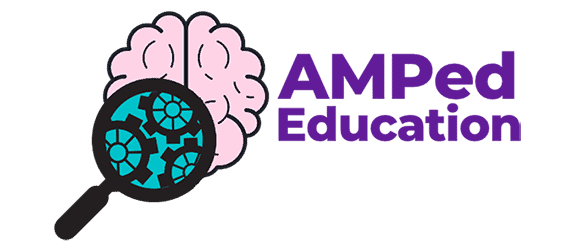A holistic approach to educational advocacy
“All advocacy is, at its core, an exercise in empathy.”
— Samantha Power
Anne Marie Palazzolo, Educational Advocate

As a special education teacher with experience helping both children and adults with disabilities in many roles, and on both sides of the IEP meeting table, I am well equipped to, and passionate about, guiding families through the process of getting their student the supports they need and deserve.
I have nearly 20 years of experience working one on one with students and their families to improve educational outcomes.
As the sibling of a person with “unseen” disabilities, I experienced first hand how a lack of advocacy can have a devastating effect on the education and overall quality of life for so many. I am passionate about being a voice for those children and their families.
What does an educational advocate do?
Educational advocates work to ensure that schools serve the best interests of students with special needs and their families. While not attorneys, advocates are familiar with the rights of students and the laws governing public and private education. They work along side, and on behalf of, parents and families to create a set of educational supports and plans that support a student to achieve their full potential.
When to hire an educational advocate

The long answer: The process of obtaining, utilizing, and especially objecting to, the special education and support services offered by the Michigan Department of Education can be hugely overwhelming and confusing for parents, especially those already carrying the immense stress that caring for a child with special needs can entail.
Having someone with expertise in the field on their side to coach and support their child’s best interests can ensure a lifetime of improved outcomes.
Where are you?
At the beginning of the process.
You have observed your child struggling in school. Long nights trying to finish homework, missing assignments, missed recesses, calls home from the teacher. You’re seeing your child’s opinion of school and of themselves waning each day. An educational advocate can help you formulate a plan of action, and be by your side throughout the process.
After being told no.
You spoke with your child’s teacher and they discouraged you from pursuing an IEP saying things like “we can just put her in the front of the class.” or “I am already giving him the accommodations that an IEP would provide anyway.” An educational advocate will ensure that you know what rights you and your child have in obtaining a FEPE (Free and Equitable Public Education) and guide you through the process of requesting testing, appealing the results of testing, seeking second opinions, and beyond.
When you think you need more support.
Your child already has an IEP or 504 plan through their school but they are not thriving. You feel that the goals, accommodations, and services provided do not align with your child’s current abilities. An educational advocate can navigate the IEP addendum process, or any other modifications that your child’s plan may require.
When your child’s education plan isn’t being carried out.
Your child has an IEP or 504 plan in place but you aren’t seeing it being utilized. They are not receiving the services set forth in the plan or they are being told that they “don’t need them anymore”. An educational advocate can do just that, advocate for your child. Ensuring that all the supports they are legally entitled to are being carried out regularly.
Do I need an Attorney, or an Educational Advocate?
While an attorney is an incredible resource in helping fight for students’ rights, including under the ADA and even in the pursuit of disability benefits such as Supplemental Security Income, an educational advocate may be able to help altogether avoid the need for legal proceedings in the first place.
An educational advocate can in fact be an excellent first, and potentially only, step in obtaining the supports the child and family need. They are intimately familiar with the rights and services made possible by IDEA and other laws governing the education of students with special needs.
An educational advocate will have the contacts and resources to connect you with the right professionals for the right services. Many of them have been part of their local special needs community for their entire careers. If an attorney does become necessary, an educational advocate will be able to connect you with one in your area that specializes in cases like yours.
In the end, an educational advocate can present a more comprehensive avenue for support and assistance at a much more affordable rate than an attorney, and to the benefit of the entire family unit, serving the best interest of the student.
What’s the difference between an IEP and a 504?
Individual Education Plan (IEP)
An IEP is for students who need modifications made to the general curriculum of their school in order to be successful. They must qualify for an IEP under at least one of the 13 categories in Michigan. A student may need to focus on different skills or spend longer working on the skills taught in their respective grade. An IEP will lay out the current level of ability of the student, what specific educational goals they will pursue, and what supports and accommodations they need to achieve them.
Section 504 of the Rehabilitation Act (504 Plan)
A 504 Plan enables students with physical or mental disabilities to access the educational offerings of their school with various accommodations. These students do NOT require specially designed instruction or modifications to the curriculum, like in an IEP.
Which one does my child need?
A student who qualifies for an IEP, typically does NOT need a 504 Plan as well. The supports they need will already be identified in their IEP. A 504 Plan is for students who are capable of participating in the general curriculum in their school, just with accommodations to improve their access. Testing/Evaluation from school professionals as well as your child’s doctor are required for both 504 Plans and IEPs.
An educational advocate is a great first step in determining which path to take as you pursue supports for your child.






